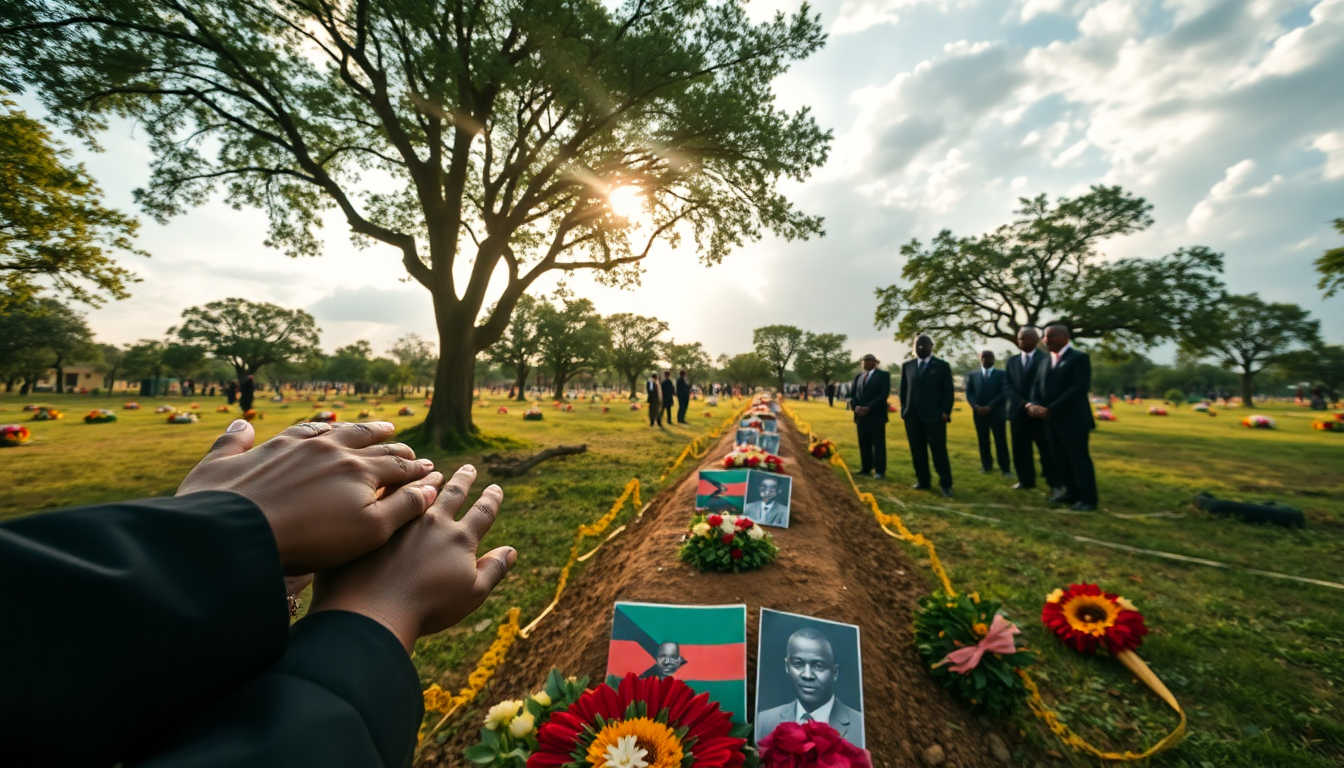Table of Contents
The recent ruling by the Pretoria High Court has sparked a fierce debate about the burial of Zambia’s former president, Edgar Lungu, who sadly passed away in South Africa. The court’s decision to mandate his body be returned to Zambia for burial, despite his family’s wishes, reveals deeper political tensions and ongoing power struggles in this southern African nation.
As Lungu’s family grapples with this unexpected turn of events, the implications of the ruling reach far beyond just the location of a burial site.
Background of the Dispute
Edgar Lungu, who served as Zambia’s head of state from 2015 to 2021, died on June 5 while undergoing medical treatment in South Africa.
His passing triggered a two-month standoff between the Zambian government, which wanted to hold a state funeral in Lusaka, and his family, who preferred to lay him to rest in South Africa. This conflict underscores the often-contentious relationship between political leaders and their families, especially in a context where legacies are passionately debated.
In the wake of Lungu’s death, the Zambian government sought court intervention, arguing that he deserved the same honors as previous presidents, all of whom were buried in Lusaka since independence from British rule in 1964. They contended that a state funeral was not just a matter of respect for Lungu’s presidency but also a point of national pride.
However, Lungu’s family voiced their desire to respect his wishes, stating that he did not want the current president, Hakainde Hichilema, at his funeral due to their long-standing rivalry. This familial dynamic added another layer of complexity to an already sensitive issue.
The Court’s Ruling and Its Ramifications
On Friday, the Pretoria High Court ruled that Lungu’s body should be handed over to Zambian authorities for repatriation and burial in Lusaka. The judge stressed that the former president’s personal wishes, or those of his family, could not override the state’s right to conduct a state funeral.
This ruling has stirred strong emotions, particularly among Lungu’s family members present in court, including his sister, Bertha, who was visibly shaken by the outcome.
The Zambian Attorney General, Mulilo Kabesha, welcomed the ruling, expressing the government’s appreciation for the judicial process. However, Lungu’s family has indicated they plan to appeal the decision, suggesting that the controversy surrounding his death and burial is far from settled.
This ruling raises significant questions about governance in Zambia and how the legacies of former leaders are navigated. The court’s decision not only impacts Lungu’s family but also reflects the current government’s stance towards its predecessors.
Implications for Zambian Politics and Society
The fallout from this ruling reverberates throughout Zambia’s political landscape. Lungu, who was elected amid high hopes for economic growth, faced numerous challenges during his presidency, culminating in his defeat by Hichilema in the 2021 elections. After leaving office, Lungu and his family have battled various legal issues, including allegations of corruption and money laundering. These struggles have further complicated the family’s situation, leading them to claim they are victims of a political vendetta.
The implications of the court’s ruling may also resonate within Zambian society, particularly among supporters of Lungu’s Patriotic Front party. This ruling could be seen as a denial of the former president’s legacy and a reflection of ongoing political divides. As the appeals process unfolds, the public will be closely monitoring the situation, as it could significantly influence future political dynamics in Zambia.
In conclusion, the Pretoria High Court’s decision regarding Edgar Lungu’s burial transcends a mere legal issue; it encapsulates the intricate relationship between politics, personal wishes, and national identity. As Zambia navigates this challenging period, the responses from both the government and Lungu’s family will undoubtedly shape the narrative surrounding his legacy for years to come. Will this ruling redefine political loyalties in Zambia, or will it further entrench existing divisions? Only time will tell.





